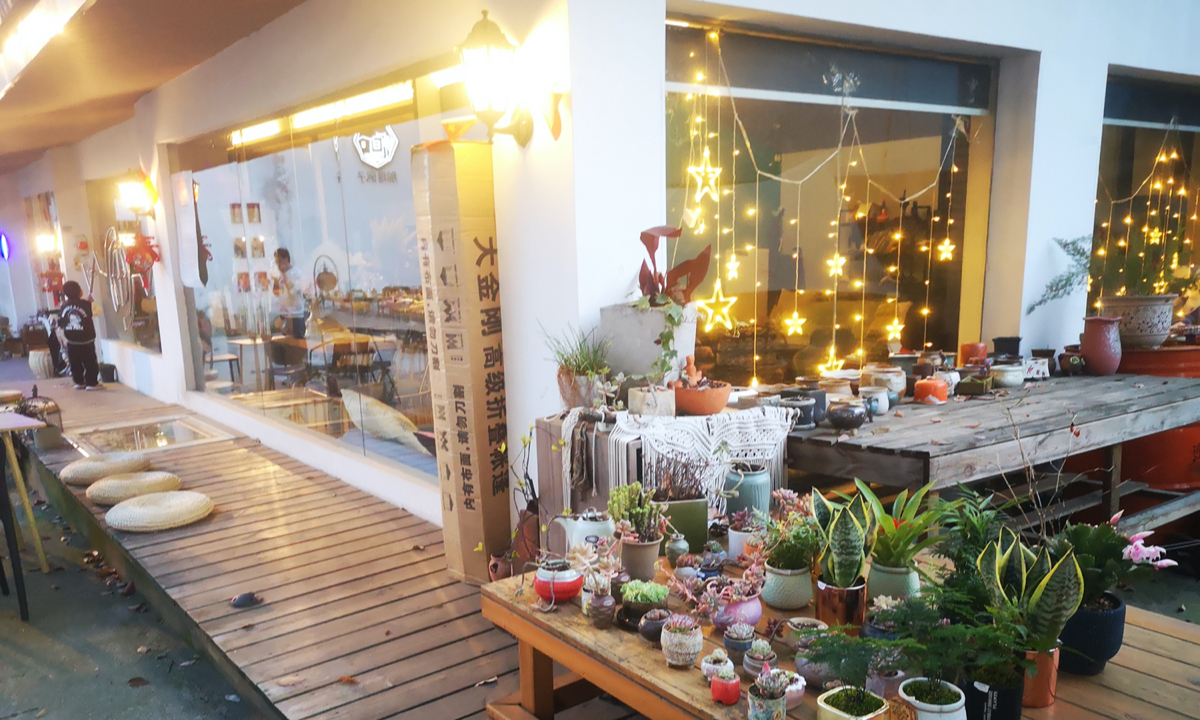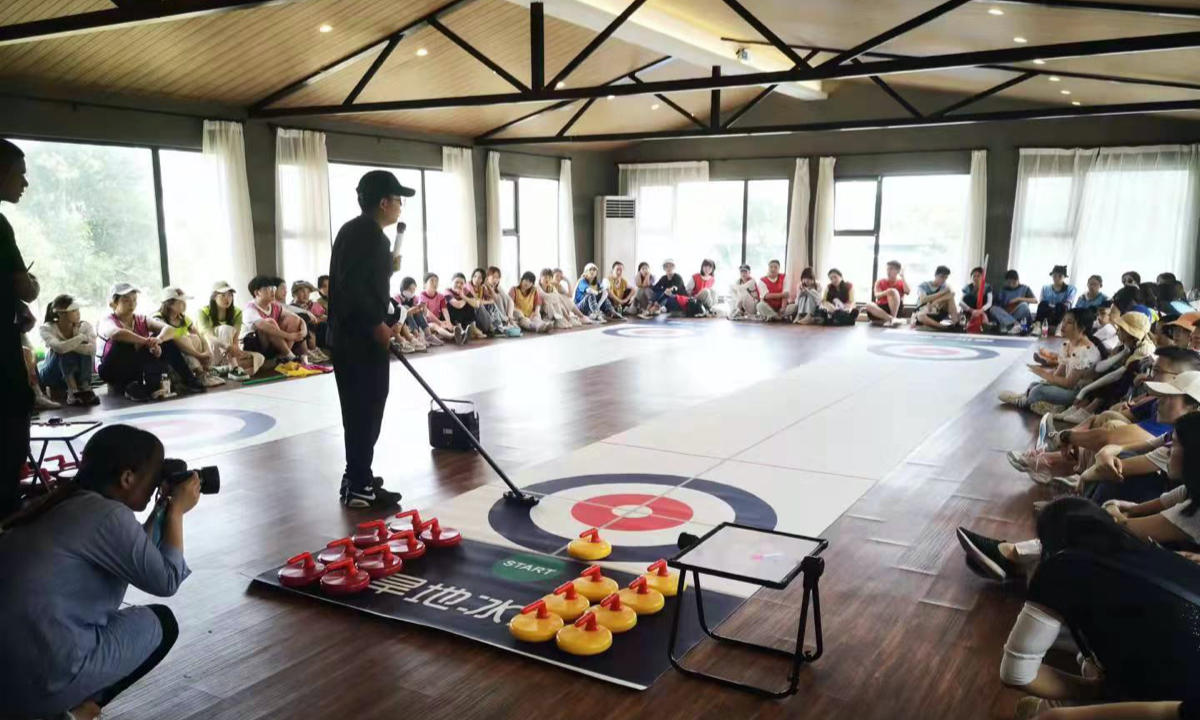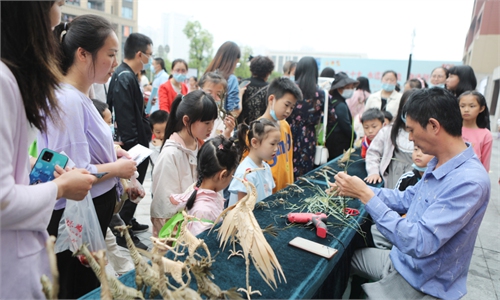ARTS / ART
Intangible cultural heritage forms bridge between mainland, Taiwan

Xu's B&B Photo: Courtesy of Allen Xu

The activity held in Xu's B&B Photo: Courtesy of Xu
Visitors to a Bed and Breakfast (B&B) in Donghu district of Wuhan, Central China's Hubei Province find it is not only a place for accommodation and rest, but also a platform to experience diverse intangible cultural heritage. This is all due to the endeavors of its owner, Allen Xu, a designer from Taiwan.
Xu has lived in the Chinese mainland for 16 years. He spent two months designing his B&B and one year constructing it by himself.
The B&B is located in a village that was planned as a base for designers and makers of cultural products in 2019 by the Wuhan authorities, so Xu decided to incorporate these cultural elements.
"We hope that these different craftsmen and inheritors of intangible cultural heritage can come here, and that college graduates, including those from Taiwan, can take Wuhan as a base to develop their interest in cultural heritage in their professional career," Xu told the Global Times. Finding the connection between traditional culture and the present market is one of the aspects that could attract more young people, Xu noted.
Xu cooperated with experts in Cloisonné, an ancient technique for decorating metalwork objects with colored materials, asking them to offer lessons in his B&B and giving guests a chance to make a piece of exquisite Cloisonné. The skill has been recognized as part of Chinese national intangible heritage since 2006.
He also invited a collector of bricks from the walls of ancient cities to develop cultural products such as fans that are printed with words from the bricks.
"I have visited all the shops in the village, around 40, and talked with them about offering sites for these craftspeople and inheritors of cultural heritage," Xu said. "That way, they can not only teach their skills in my hotel but also spread the culture on broader platforms."
There have been around 200 university students from Taiwan learning in Wuhan, Xu noted. He is trying to seek cooperation with more universities to provide off-campus training bases for college students to learn cultural, creative and intangible cultural heritage skills.
"The young people from Taiwan are interested in Chinese intangible cultural heritage and their parents are also willing to let them develop the career in the mainland, but they worry that they cannot find a suitable job that can support their life."
Xu wants to show these young people that intangible cultural heritage can be both interesting and also offer a viable profession, adding that the traditional culture of all Chinese people can be taken as a bridge to connect the Chinese mainland and the island.
Xu mentioned that some traditional cultural skills such as puppet shows have been fading away in Taiwan as they are less accepted by young people and the market.
"I am gathering young people with creative ideas and craftspeople with skills to give traditional culture fresh blood," Xu said. This can give young people, especially from Taiwan, more confidence to devote themselves to intangible cultural heritage.
Exchanges of intangible cultural heritage between the mainland and Taiwan have been continuing in recent years.
During the Beijing 2022 Winter Olympics, the 11th cultural week of Kaohsiung and Beijing was held. Peng Xiaoping, a maker of miniature walnut dough figures and also a Beijing folk arts craftsman, taught guests to make dough figurines of Bing Dwen Dwen, the mascot of the Games.
Peng said that he has visited Taiwan nine times to participate in cultural and art exchange activities related to intangible cultural heritage. Many colleagues in Taiwan who are engaged in the art of dough figurines were surprised by this and they exchanged skills with him, People's Daily reported.
An online event for exchange of intangible cultural heritage was held in Zhangzhou, East China's Fujian Province in December 2021. Puppet show performers from Zhangzhou and Taiwan displayed their skill for audiences through the internet and also exchanged their experiences with colleagues.


